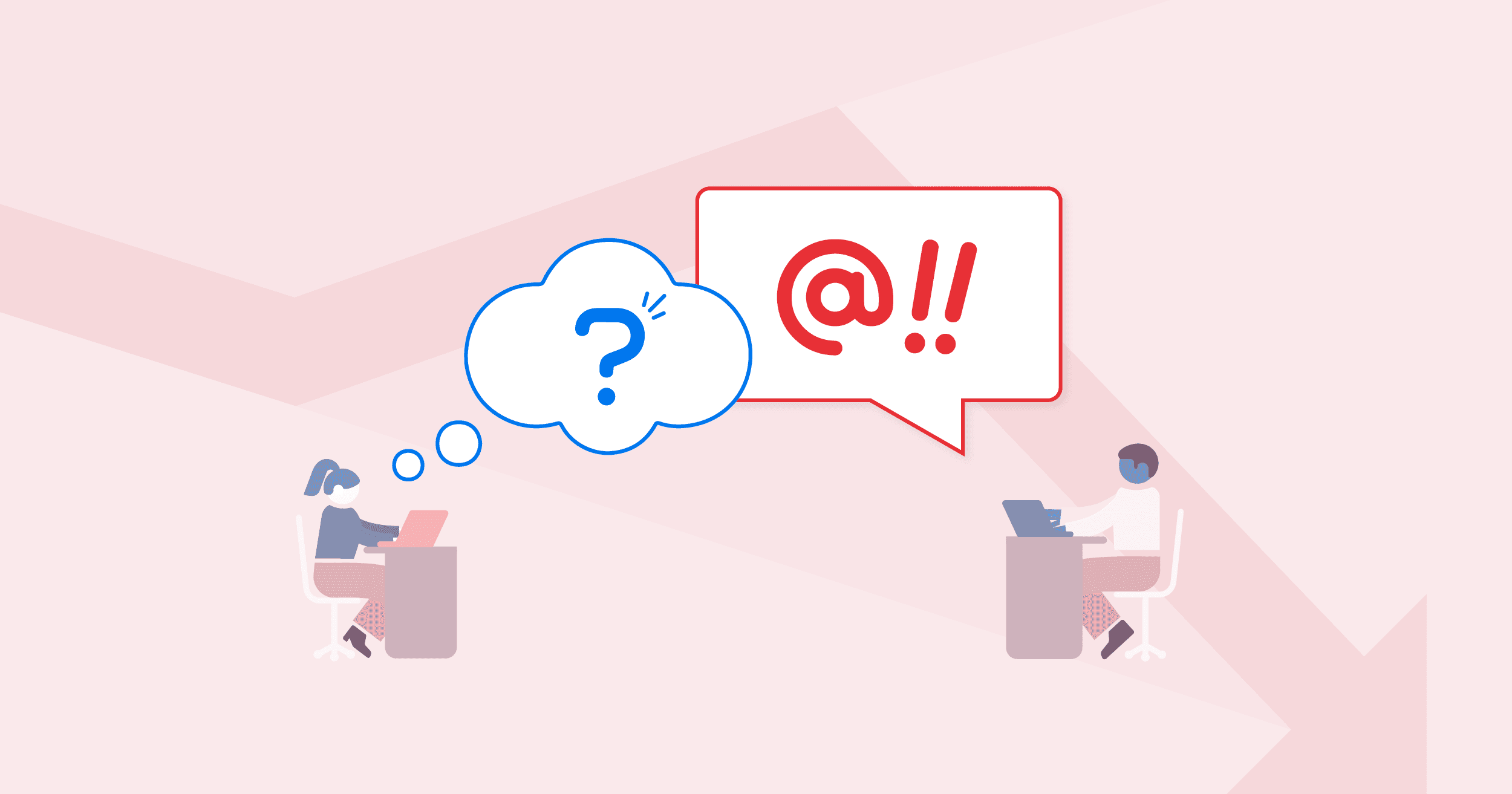Table of Contents
QUICK SUMMARY:
Toxic clients harm agency culture by eroding morale, disrupting creativity, and spreading negativity. This article outlines how to identify and manage toxic clients to protect agency operations. Learn from nine agency owners about recognizing the signs, maintaining professional boundaries, and implementing a structured process for client dismissal.
As a marketing agency, you’ve dealt with it all. From meeting those pressing deadlines to maintaining a positive marketing agency culture, it’s a dynamic space to be in. While working in any client-facing industry, you’re bound to come across a challenging client or two.
It’s tricky to navigate: you want to provide the best possible service without ruffling feathers or turning away business. But how far is too far when it comes to toxic clients?
Let’s face it–sometimes the check at the end of the month isn’t worth a toxic client that erodes your marketing agency culture, disrupts the creative flow, and permeates negativity into all aspects of your operations.
We’ve asked nine agency owners how they identify and deal with toxic clients–read on to see how your agency can relate.
In this article, we’ll cover:
9 Signs You’re Dealing With a Potentially Toxic Client
To save your valuable time and energy in the long run, it’s important to know how a toxic client acts and what to look out for before onboarding.
If you sniff them out at the quote stage, try to wiggle out ASAP, and don't worry about losing invoiced sales. They might not even pay their bills anyhow, and the emotional toll on your team is not worth the money they may pay.
Daniel Noakes, Founder of UClimb Ltd
The following tell-tale signs of a toxic client will help you take a proactive approach to protect your marketing agency culture.
1. Constantly Asking for Discounts or Freebies
Time is money. As an agency, you’re not only there to serve clients and work on projects but also to make a profit. After all, you’re running a business.
And while there’s no harm in negotiating a bit and deciding on agency pricing that makes sense for both you and your clients, if the client is constantly asking for a discount or free work, it's an indication that they may not value what you do.
Aside from testing your boundaries, it may signal advantageous, toxic clients trying to squeeze everything they can from your agency, with as little as possible in return. Recognizing this behavior from the get-go will save you from dealing with unscrupulous behavior in the future.
For example, a toxic client may eventually approach a junior employee (such as an intern learning the ropes and agency processes) who may bend to these unreasonable requests:
We’ve observed some toxic clients that attempted backchanneling to other staff members they regarded as more friendly to their cause. They also had unrealistic expectations around costs and an unwillingness to commit for more than two months.
Mick, Digital Marketing Lead at HeartBeat Digital
2. Never Taking Ownership of Mistakes
In the working world, we’re all going to make a mistake at some point; it’s human nature. Ownership or even a simple apology goes a long way in these scenarios.
If your client is in the wrong (e.g., not paying an invoice on time or approving a social media post that they later change their minds about), taking ownership of any shortcomings shows that they value their business relationship with your agency and are willing to find a middle ground.
However, a lack of an apology or explanation when digressions happen may show a lack of respect and accountability. And just because you’re in a customer-serving industry doesn’t mean your agency should accept substandard treatment.
3. Constantly Making Unreasonable Demands
It’s 8 AM on a Saturday, and you’re finally catching up on sleep after a productive week at the agency. Imagine waking up to the constant ‘pings’ of your phone, only to realize it’s a client contacting you for the fifth time on a weekend about a non-urgent, menial issue like ‘There are no Likes on my last social media post!’
While ad-hoc requests may happen out of office hours from time to time (which you should have a procedure in place for), unreasonable demands, especially during off hours, show that a client doesn’t value your time. They may also act like you don’t have other things to do, such as tending to other clients or a life outside of work.
One of the major flags is usually communication levels early on. When we receive multiple out-of-hour communications, we know this client will be hard work.
Ben Spray, Managing Director of We Are Marketable
4. A Negative Attitude That Affects Your Team
Energy is contagious. You don’t want a cyclone of negativity to disrupt your agency’s operations or bog your staff down, especially when they’ve got other things on their plates.
While there are always some challenges to expect (such as navigating personality differences), a client's overbearing, negative attitude can severely hamper your staff’s ability to produce their best work and feel good about what they’re doing.
Sometimes you have to decline to work with a client either from a morale point of view, mental health point of view, or if they’re going to burn out your team. If you throw a toxic client into your account management team that creates negativity and stress; they start not wanting to come to work or will look for other jobs. It can be really damaging for your agency.
Oliver Wood, CEO of Perth Web Design (PWD)
5. Disrespect or Poor Communication with Your Staff
A major red flag is a disrespectful tone towards your staff. This may range from more subtle communication mistakes (such as rolling eyes or demeaning remarks) to disrespectful language (e.g., cursing, insults, shouting, or name-calling).
Some of our medical clients would treat us like a nurse that worked for them in the hospital and say things like ‘Why don’t you just do that for me?’” And I would tell them, ‘I’m not going to fix your accounting. I’m just showing you there’s a problem, and you’re the business owner.
Trevor Shirk, CEO & Founder of Terrayn
Whatever the case, it’s demoralizing, unpleasant, and downright unprofessional. Your agency should never tolerate this behavior at any cost; it clearly shows that this is a toxic client. After all, showing respect is a two-way street.
If a client shows a lack of respect during a meeting, this is where you draw the line. You have to make it clear that to continue a working relationship; there has to be a level of mutual respect.
Olu Ajanwachuku, CEO of GVATE LLC
6. Consistently Late Payments
Some clients clear up their monthly invoices like clockwork. Others are more challenging, and you may even have to convince clients to pay on time. While these nuances come up occasionally, a toxic client may consistently make late payments or make excuses for their digressions month after month.
At the end of the day, your agency has a range of expenses to cover, such as overheads, staff salaries, and monthly subscriptions. And even if you didn’t, you still deserve timely payments as per your contractual agreement.
If the client does not respect your time enough to pay you on time, that is another red flag.
7. Unclear Communication and Shifting Project Scopes
The purpose of a scope of work and contractual agreement is to have accountability and ensure that both parties know what’s expected. After you’ve crossed your t’s and dotted your i’s, dealing with a client that’s constantly shifting expectations is a major red flag.
For example, a toxic client may onboard your agency to run Facebook Ads with a $1000 budget for a month, only to backpedal and state they’ve got no way to pay for it after you’ve completed what you were supposed to.
Cover your tracks by streamlining all communication, documenting requests for changes, and referencing previous correspondence where necessary.
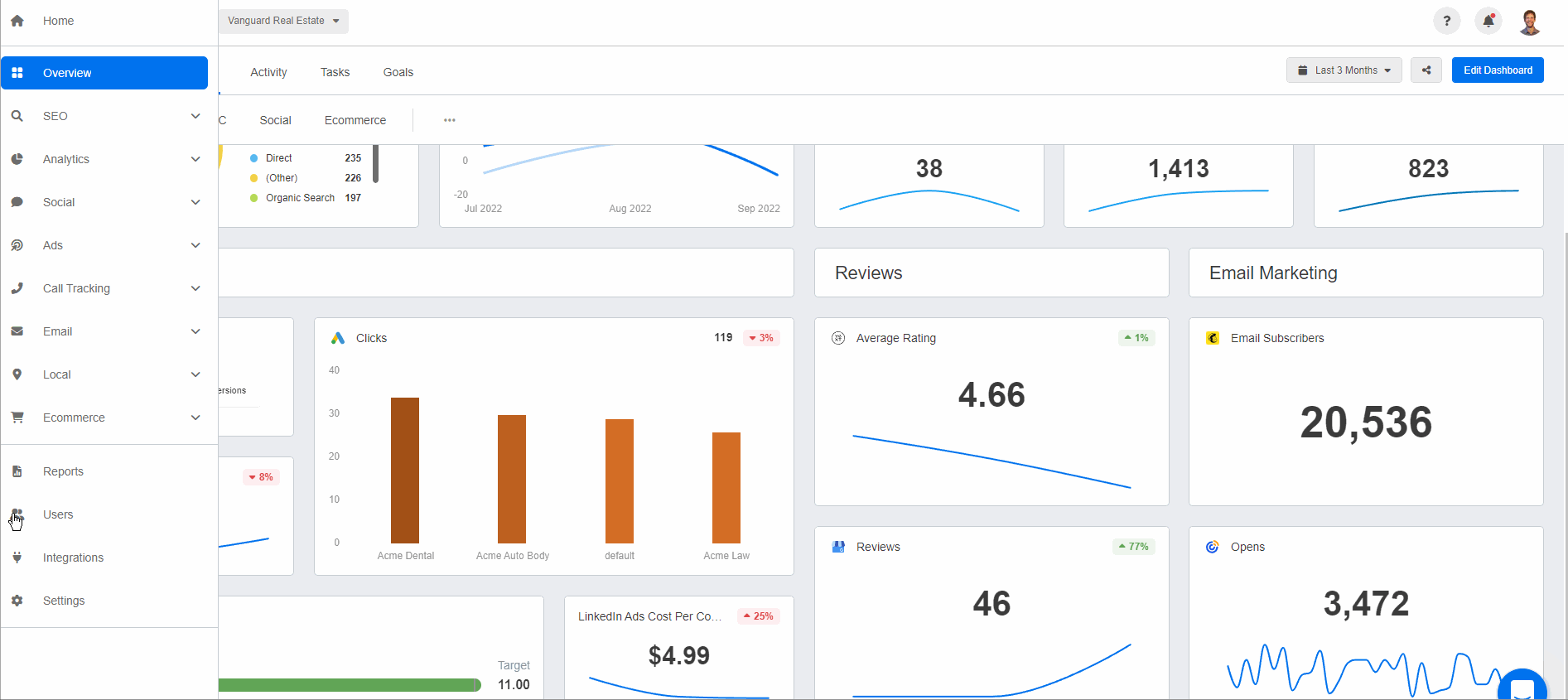
Don’t get lost in never-ending e-mail threads. Create user profiles to streamline all client and staff communication and task management–try it free for 14 days on AgencyAnalytics.
8. Not Trusting Your Well-Informed, Expert Advice
As a well-versed marketing agency, your advice and recommendations come from extensive knowledge and experience. While it’s normal to answer client inquiries or clear the air on technicalities, an incessant amount of questions or skepticism may indicate a lack of trust in your expertise.
The main feature of toxic clients we've come across is they have a low-trust culture. This leads them to question everything we propose, examine everything we do for issues, and focus excessively on the negatives. The tone of the queries demonstrates a low-trust confrontational approach rather than a high-trust collaborative approach based on mutual respect.
Daniel Noakes, Founder of UClimb Ltd
All good agency-client relationships are built on transparency and trust, and so is the one between your marketing agency and a client. If your client doesn’t trust your ability to produce results or provide expert advice, it may be the start of a rocky relationship.
Think about it– onboarding a client who’s not confident in your abilities will trickle down to all parts of their project cycle (such as during the results-tracking stage and even after you’ve completed work).
If a client is not on board with what you’re suggesting from the get-go, it may not be the best fit and could lead to issues down the road.
9. You Can’t Make the Client Happy, No Matter How Hard You Try
Sometimes, you may simultaneously reach a dead-end and an ‘ah-ha’ moment– you just can’t keep toxic clients happy, no matter how hard you try.
If you’ve exhausted all options after consistently putting your best foot forward, it’s probably them (and not you). Not all clients are a good fit, and that’s okay too.
3 Ways Toxic Clients Negatively Impact Marketing Agency Culture
If you don’t draw the line somewhere, you run the risk of running a free-for-all business that tolerates lousy behavior. And the long-term consequences may be dire, such as a negative marketing agency culture where your staff dreads coming to work and constantly checks job alerts while sitting at their desks.
There are several reasons your agency shouldn’t tolerate overbearing, toxic clients.
1. Increased Stress Levels and Overwhelmed Staff
Mental well-being in the workplace is essential for staff productivity, work satisfaction, and the efficient operation of your agency.
While occasional stress or pressure are parts of the job (e.g., long days at the office to wrap up a high-ticket client project), too much strain will negatively affect your staff’s well-being and overall ability to function optimally over time. It’s just not sustainable or healthy.
To top it off, chronically stressed employees may lose motivation and tune out, affecting employee engagement–which is essential to staff retention, long-term business success, and ultimately, your agency’s bottom line.
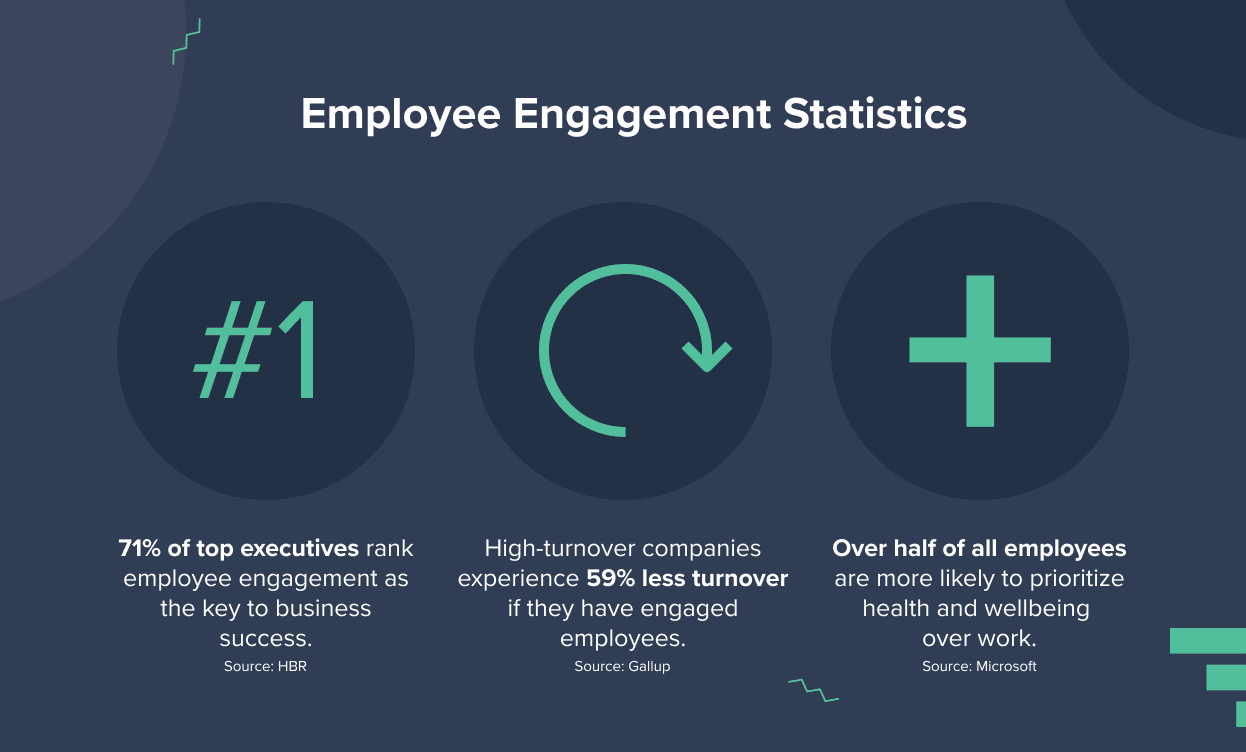
2. Losing Talent Due To Low Morale
Employees are human beings that want to be treated with dignity and respect. Constantly dealing with a toxic client may negatively affect their morale, derail their sense of purpose, and reduce their positive thoughts while at work. What does that lead to? Disgruntled employees and high turnover rates.
Finding the right talent is a challenging task. From conducting multiple interviews to relentlessly searching for the right cultural fit, it’s a work in progress that takes patience, persistence, and trusting your gut.
Keeping a toxic client has the potential to throw all this hard work away. After all, staff retention is just as necessary as client retention.
You don’t want to exhaust company resources to train new staff only to have them submit a resignation letter all because of a toxic client–or your agency’s acceptance of toxic clients. Not only is it disruptive to your business, but it may also lead to a bad workplace reputation (and word gets around).
Entertaining toxic clients will lead to mental fatigue on your team, dealing with an unfair stream of negative feedback, and multiple additional non-chargeable hours spent trying to keep them happy or answer their queries. Keeping a toxic client takes up your time and energy and stops you from getting positive clients to replace them.
Daniel Noakes, Founder of UClimb Ltd
3. Blocks Creative Flow
Marketing and creativity go hand in hand. And an essential part of facilitating creative flow is a positive work environment that allows your staff to do what they do best. For example, a nitpicky, overly demanding client that requests a truckload of changes may tie up your graphic designer’s time and energy.
Not only do these scenarios monopolize your staff’s time and creative energy, but it also leaves them with less room to fulfill other client requests.
Firing a toxic client saves the team from unnecessary stress and anxiety. It also saves the company from over-investing in one client because they are demanding, while potentially losing time managing a good client.
Calum Maxwell, Managing Director of Optimise Online
Why Firing Clients Is Difficult for Both Parties
Firing a toxic client is never a pleasant situation. Still, sometimes it’s a necessary evil to protect staff morale and set a precedent for what you will and absolutely won’t tolerate.
Saying bye-bye to a toxic client–while gratifying in one way–certainly isn’t always an easy feat. If you’re contemplating firing a client or you’re currently in the process, here’s what you may experience.
1. Guilt About Disappointing a Client
The road to marketing success is paved with good intentions. Upon signing on a new client, your agency was committed to providing the best results possible and ensuring satisfaction at every step of the customer journey.
When that business relationship falls through, you may experience guilt or even wonder things like, ‘Is there something I could have done differently?’
To top it off, you may feel bad about severing ties, especially if you were in the middle of delivering a project. Feeling guilt is a commonly experienced by-product of firing a client, but don’t let that deter you from making the best choice for your agency.
Discomfort may linger for a while, but the effect of having a toxic client is far more detrimental.
Life is too short. If it feels like it isn't the right fit, end the relationship, period. In my experience, each time I've made this call, it's opened up room for a new opportunity with an ideal client. You do your best work when you have a strong relationship with your client. Don't sacrifice that for someone who isn't the right fit for you and your business.
Brittany Woitas, Founder of Kōvly Studio
If you’re harboring guilt and second-guessing your decision, remember that the best choice isn’t always the easiest. And having the courage to fire a toxic client may bring you closer to onboarding those that align with your ideal client profile.
2. The Financial Impact on Your Agency
It’s never a good feeling to put a dent in your cash flow, especially if it’s from losing a long-standing or high-ticket client.
While a flow of revenue is always great to keep things moving at your agency, consider the long-term impact and whether the extra dollars are worth the hassle. As Ben Spray puts it, “Your stress levels are more important than short-term revenue, so look after your business first.”
For example, a high-paying client may look great on paper, but if they’re on the extreme end of the toxicity spectrum, it’ll have far-reaching consequences for your agency later (such as payment delays).
I can't think of any pros for keeping a toxic client. Even though it may make the invoiced sales figure higher, they will often withhold payment for petty reasons or even end up asking for a credit or compensation.
Daniel Noakes, Founder of UClimb Ltd
3. Potential Blowback and Negative Reviews
Word travels pretty quickly, especially if you’re a renowned agency or dealing with a well-known client. The possibility of negative views is a real and warranted concern, as you don’t want this negative experience to affect the chances of getting more clients.
Even if you’ve followed the book and graciously terminated a client contract, it may lead to bitter feelings and negative reviews. However, as you move through the agency life cycle and become more experienced in the game, you’re bound to deal with these types of scenarios from time to time.
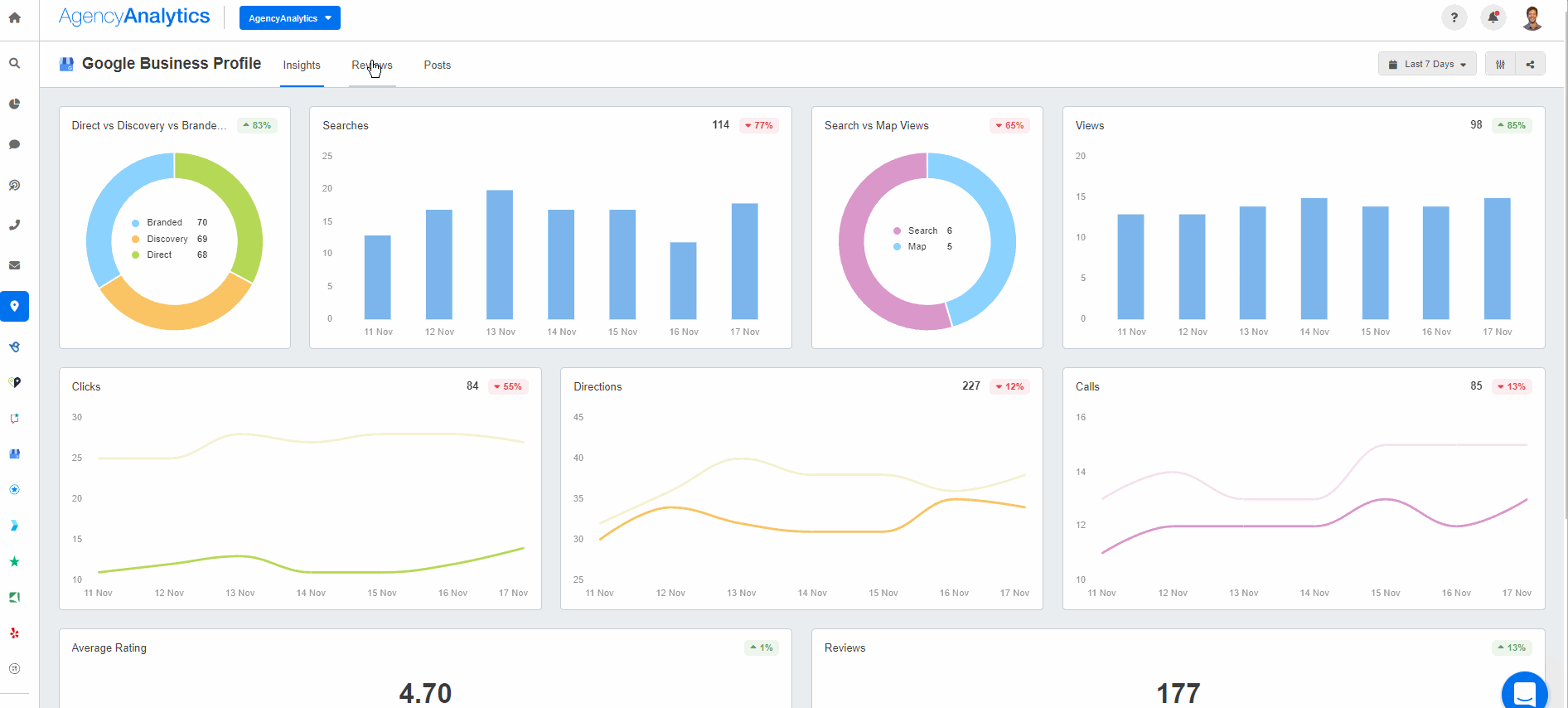
Reputation management is just a click away on the AgencyAnalytics platform. Monitor new reviews, Google Business Profile insights, and more– try it free for 14 days.
If you’ve fired a toxic client and they’ve chosen to vent their experience on a public forum, keep your cool and stick to the facts. No need to go into extensive or granular details– respond to their concerns and state what your agency did to temper the situation.
Don’t add fuel to the fire unnecessarily; seek legal advice if it escalates out of control (e.g., toxic clients trying to damage your reputation by sharing untrue claims).
Be sure to source positive reviews from other clients and showcase them on your website and social media pages. That will reduce the likelihood of one negative review tainting your agency’s entire reputation.
How to Fire a Client As Nicely As Possible
It’s not easy to get to this point, but sometimes it’s necessary. Here are the steps to fire a client and the best practices when doing so.
1. Avoid Playing the Blame Game
I have an open conversation with them, I tell them that on a business level we can no longer work together as it's not beneficial to either party. I wish them the best for the future and we go separate ways, sometimes they try to come back but mostly being honest and explaining the full reasons help both sides understand it's for the best.
Ben Spray, Managing Director of We Are Marketable
Even if you feel strongly about whatever transpired, remember to keep things professional and don’t resort to a back-and-forth blame game.
This will only make things spiral out of control and may even blow things out of proportion if emotions run high. Instead, commit to having an open but respectful conversation.
2. Finish Any Work Currently in the Pipeline
The terms of the agreement contract state the terms of cancellation. We typically have to complete the work for that billing cycle before discontinuing the working relationship with the client.
Olu Ajanwachuku, CEO of GVATE LLC
Your agency’s contractual agreement is critical in these scenarios and should outline what happens if work is stopped at a preliminary stage.
A good practice to follow is to ensure that work is handed off correctly and include a final task list for both parties to reference. That way, you and the client are on the same page and know exactly what’s being delivered. It’s also best to outline follow-up steps, such as clearing outstanding balances or signing an official notice of termination.
We have a firm policy around mutual respect between our team and our clients. If we feel that line has been crossed, we unapologetically terminate that client by simply stating that we are no longer the right fit for each other. From there, we share all assets with the client and clearly outline any applicable next steps, and end the relationship.
Brittany Woitas, Founder of Kōvly Studio
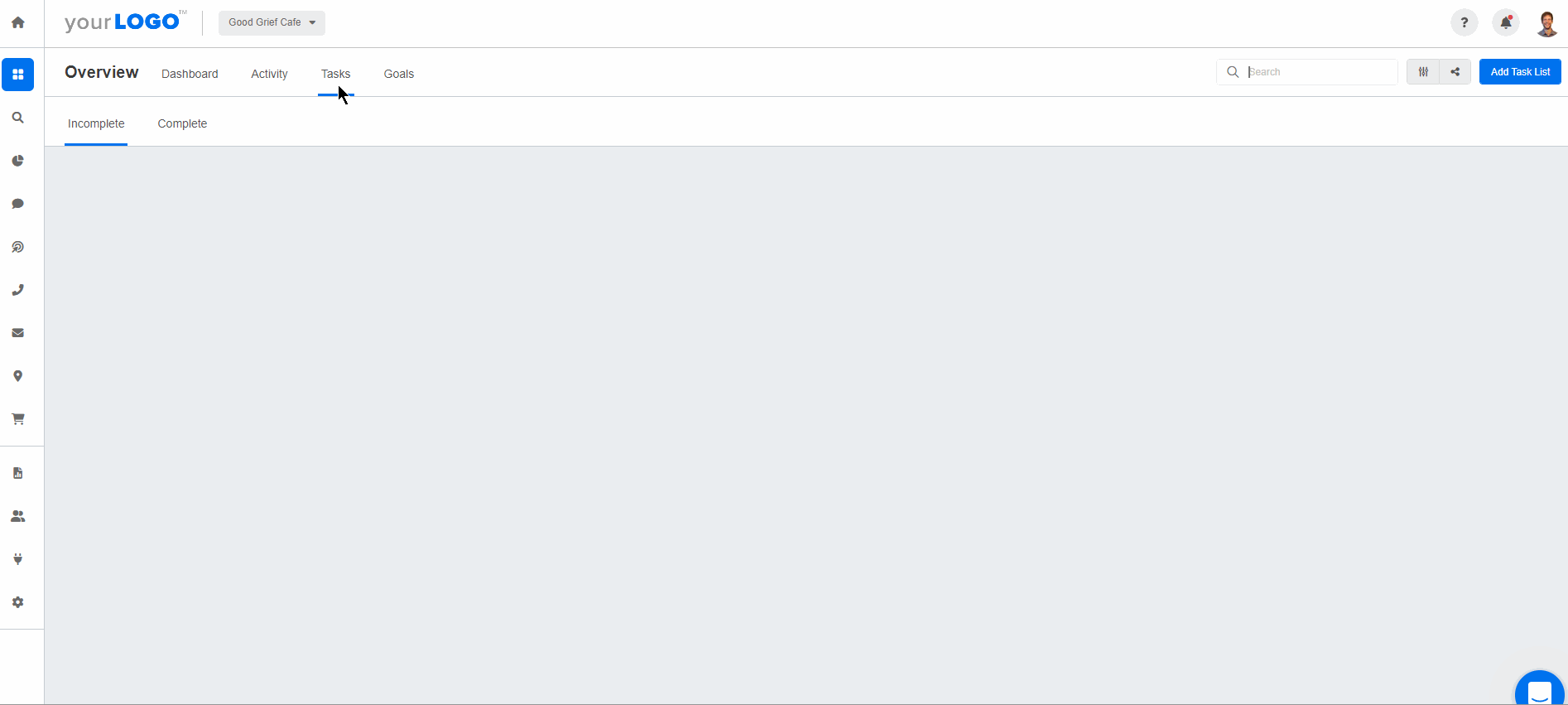
Keep a rolling task list, so you don’t miss any outstanding deliverables. Create your own list on the AgencyAnalytics platform with a free 14-day trial.
3. Be Firm About Your Decision
Once things are in motion to fire a toxic client, stand your ground and don’t second guess your decision. If things got to this point, you’ve likely exhausted all options (such as finding some middle ground or communicating any concerns).
Whether you’re harping on lost revenue or a toxic client is begging you to reconsider your agency’s decision, now’s not the time to falter. Keeping client relationship standards safeguards your marketing agency culture from toxic clients and enforces your boundaries.
If we move towards firing the customer we assess work in progress, complete all work, call the customer in and advise that we are discontinuing our services. Do not keep them. It causes undue stress and anxiety within the team, ultimately hurts the business and destroys happiness.
Calum Maxwell
4. Clearly State Why You’re Parting Ways
Communication is key when it comes to firing a toxic client. Even if they’ve upset your staff, continuously made late payments, or displayed unprofessional behavior, it’s important to communicate effectively instead of just cutting them off with no explanation.
Give clear reasons for terminating the arrangement, reference any specific incidents, and document all communication for future reference. And remember to remain grounded, courteous, and professional at all times.
Never argue. Listen to their concerns and see if there is any common ground that you can build upon.
Dan Alper, Vice President of RankWorks
5. Thank Them for Past Business
Keeping your dignity and professionalism intact should be your utmost priority. While the business relationship didn’t work out, expressing your gratitude still goes a long way and shows you value the opportunity to work with this client.
Depending on the severity of the situation, who knows–maybe this relationship could be salvageable or mended one day.
6. Suggest a Replacement (If Possible)
A bad client-agency fit is never an ideal situation to deal with. Depending on the nature of this termination, you may know another agency (or freelancer) who may be able to take on this client or won’t mind dealing with their transgressions.
We offer to migrate the client to providers of their choice at no cost.
Dan Alper
In this case, mentioning another business may help this client transition smoothly without severely disrupting their marketing activities. In some cases (depending on the particularities of the contract), giving a notice period for termination also gives the client an opportunity to source a replacement. Additionally, conducting a thorough client exit interview can provide valuable insights into the reasons behind the termination and help your agency make improvements moving forward.
Summary and Takeaways
Spotting a potentially toxic client (or having to fire one) is one of the growing pains when running an agency. Whether it’s your first or twentieth time, firing a toxic client is never easy but sometimes needed. If you’ve already gotten to this point or you’re contemplating firing a client, remember to:
Keep communication open, respectful, and transparent
Stick to your boundaries and protect employee morale
Outline a procedure for firing a client and include a clause in the contract
Document all communication for future reference
Retain professionalism and dignity at all time
As your agency juggles multiple clients, it’s important to have a central communication hub and a platform that serves as a bridge between you and your clients.
That’s where an automated tool like AgencyAnalytics comes in. Seamlessly house agency operations, client reporting, and data-driven insights, all in one place.
Manage your agency’s operations, grant client login access, and monitor any online reputation changes through AgencyAnalytics. Try it free for 14 days–no credit card required.

Written by
Faryal Khan is a multidisciplinary creative with 10+ years of experience in marketing and communications. Drawing on her background in statistics and psychology, she fuses storytelling with data to craft narratives that both inform and inspire.
Read more posts by Faryal KhanSee how 7,000+ marketing agencies help clients win
Free 14-day trial. No credit card required.



